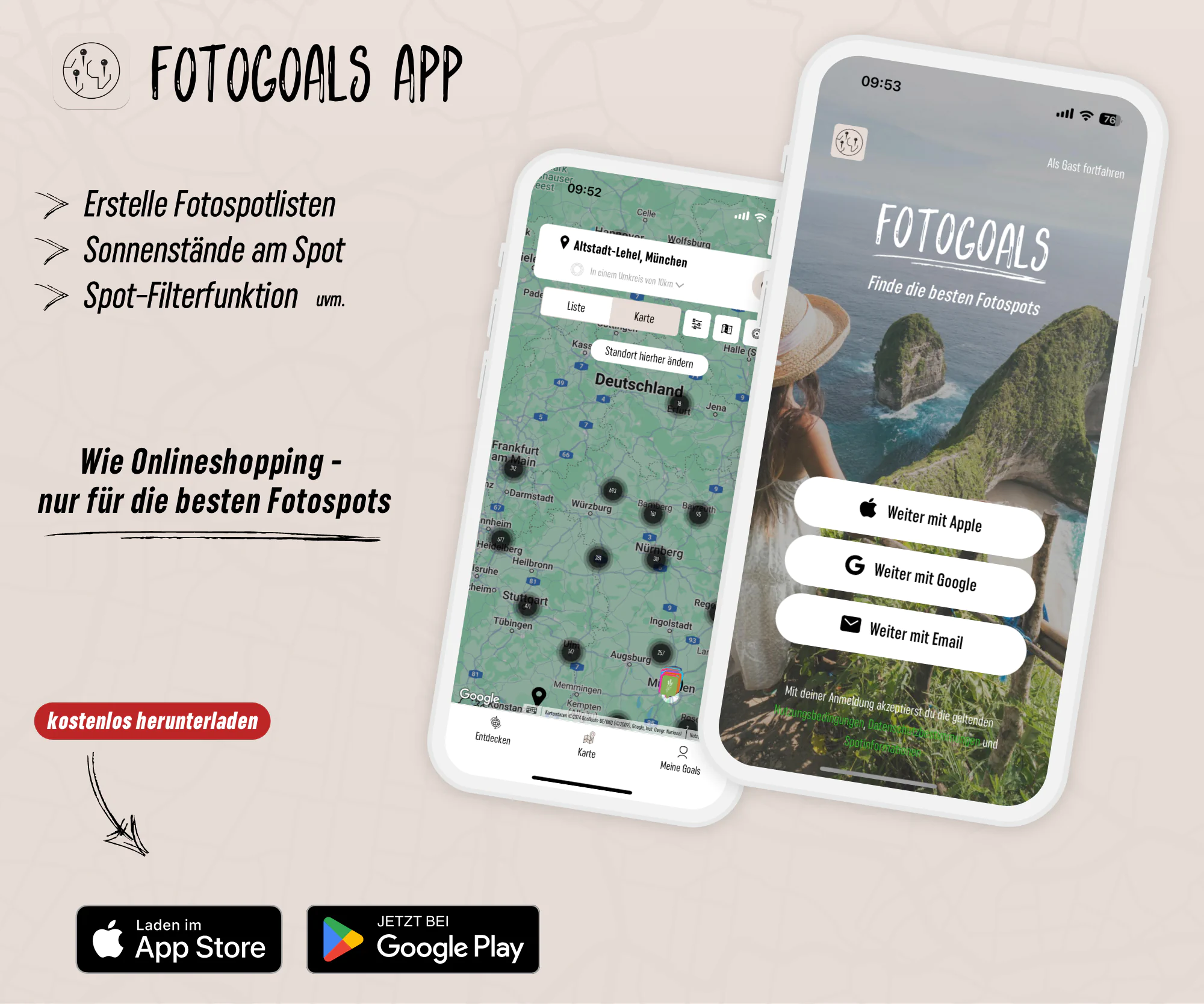Singapore
Immerse yourself in the fascinating world of Singaporean landscapes, architecture and culture, which offer a rich diversity and unparalleled beauty. From the futuristic gardens of Gardens by the Bay to historic neighborhoods such as Chinatown and Little India, Singapore offers a wealth of photo opportunities to delight any photography enthusiast.
Singapore
Capital city
5.637.000
Population
Engl., Mandarin, Malay, Tamil
Language
357,588 km²
Surface area
Welcome to the innovative city-state
Photo spots in Singapore

Welcome to the Garden City State – Singapore, where photo spots invite you on a journey through the many facets of culture, history and breathtaking architecture. From the futuristic gardens of Gardens by the Bay to the vibrant city life of Marina Bay and historic neighborhoods such as Chinatown and Little India, the architecture and culture in Singapore reflect a fascinating diversity that will inspire any photographer.
Explore the impressive skyscrapers, charming colonial buildings and idyllic beaches on Sentosa Island. Singapore is a country full of contrasts, characterized by its rich history and cultural diversity, which enchants its visitors with every photo spot. From the small hidden gems to the vibrant neighborhoods, Singapore offers a seemingly endless array of photo opportunities waiting to be discovered. Get ready to be captured by the beauty of this city-state and start your photo journey through Singapore.
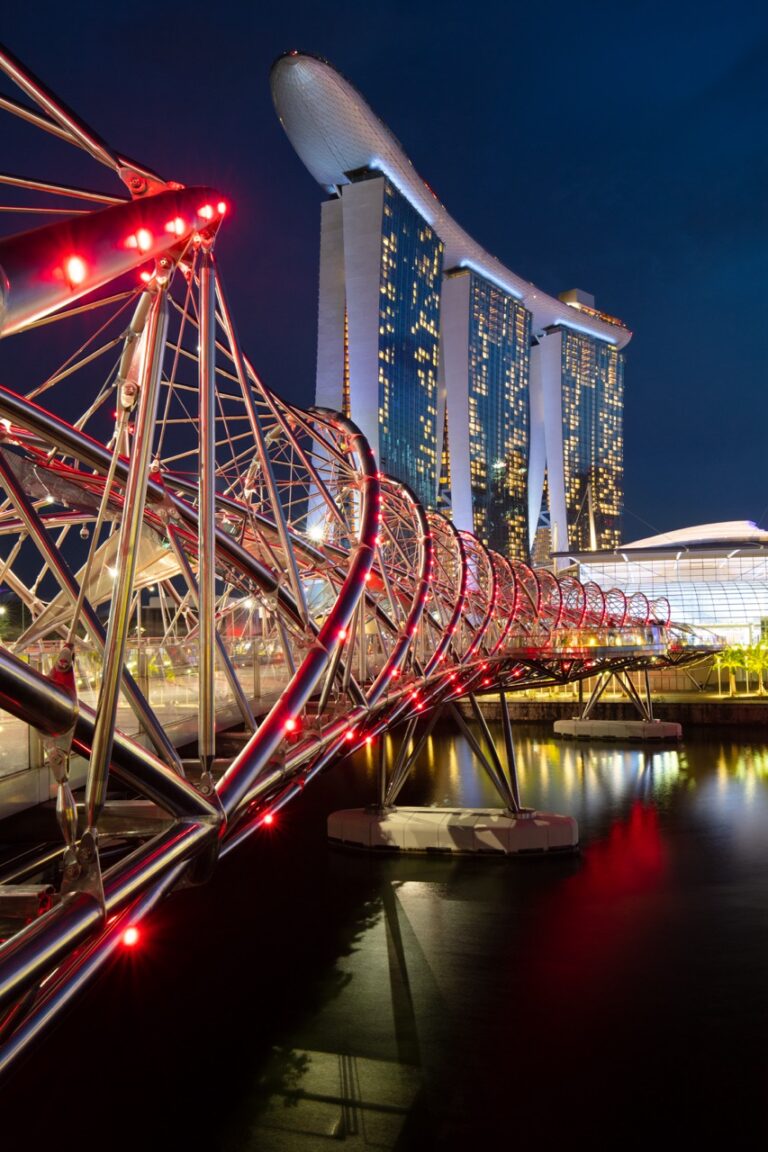
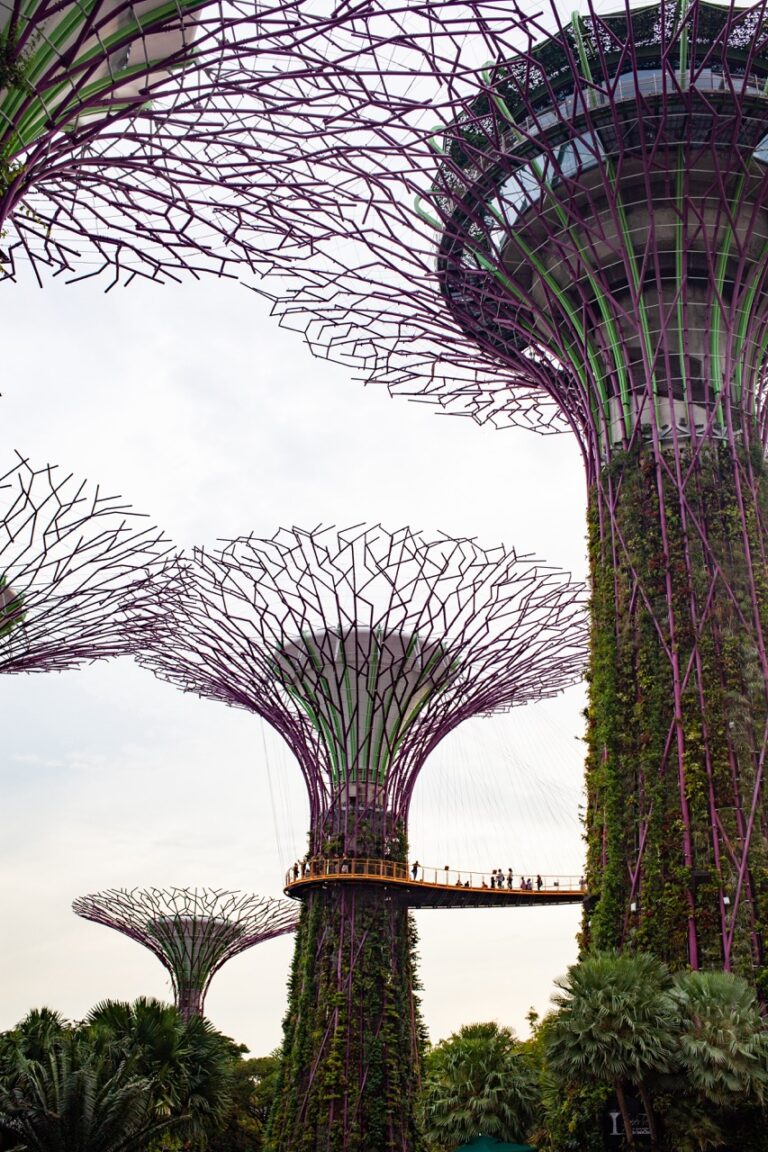
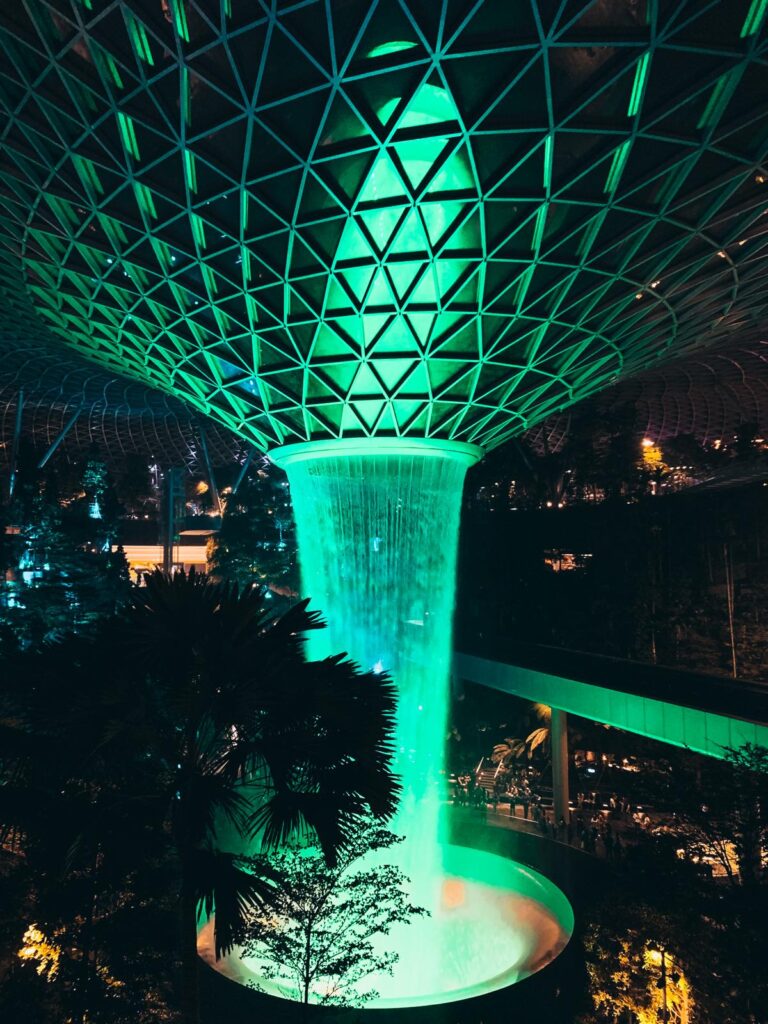
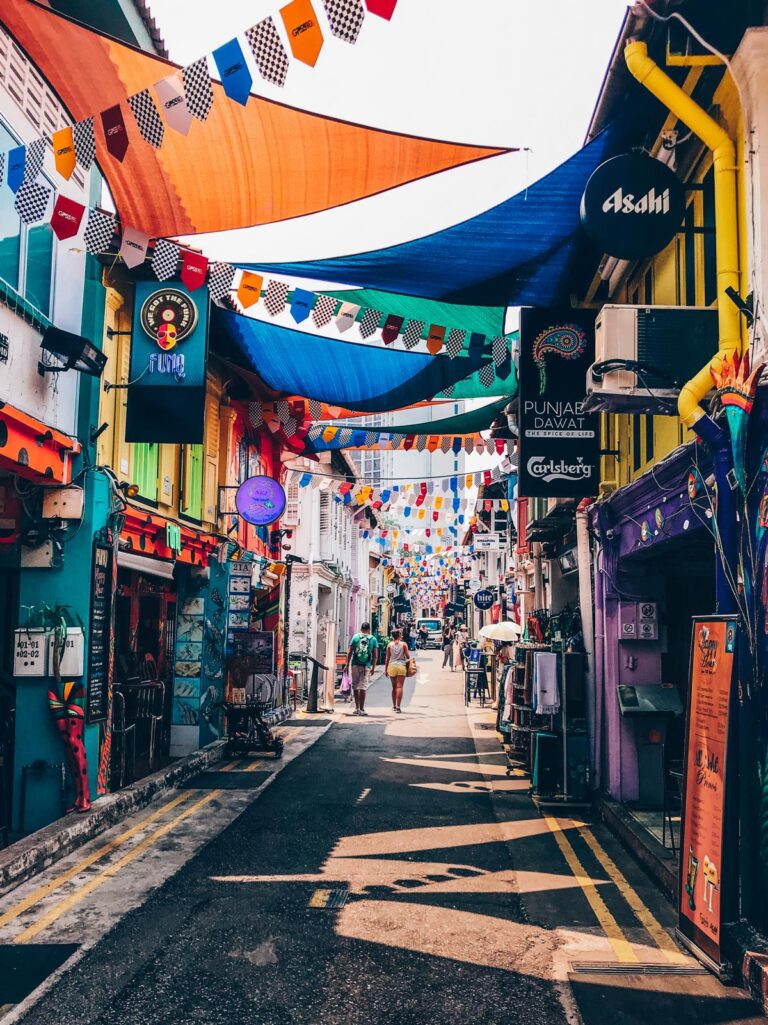
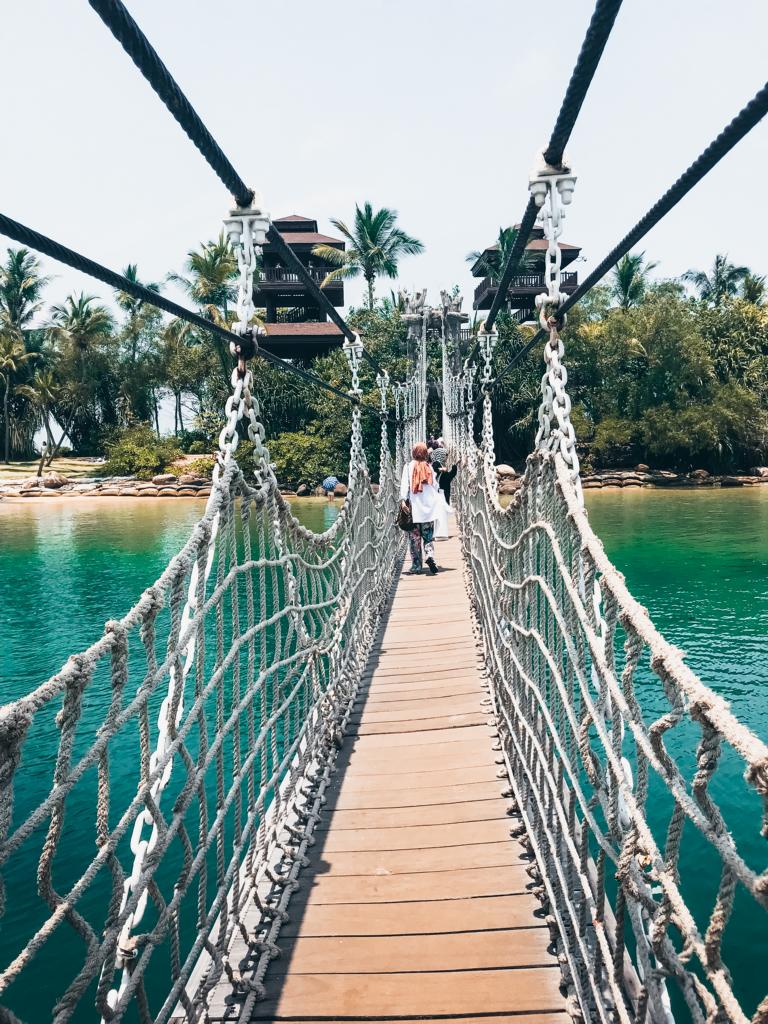
Good to know

Here you will find important information for your visit to Singapore or for your trip through this fascinating city state in Southeast Asia. We’ll give you everything you need to get the most out of your stay in Singapore. Let’s go on a journey of discovery together and experience the best photo spots with Fotogoals.
Regions
Singapore is a city-state and consists of various districts and neighborhoods, each offering its own unique sights and cultural highlights. The most famous districts include Marina Bay, Chinatown, Little India, Orchard Road and Sentosa Island. These regions offer a fascinating mix of modern architecture, historical sites and cultural diversity to explore.
Currency
The official currency in Singapore is the Singapore dollar (SGD), which is accepted as a means of payment throughout the country. The country’s largest banks include DBS Bank, OCBC Bank and United Overseas Bank (UOB). ATMs can be found in banks as well as in many public places such as shopping centers, train stations and airports, making access to cash convenient and easy.
Mobile radio
Grocery
In Singapore, most supermarkets and discount stores are open from Monday to Sunday from around 7 or 8am to 10 or 11pm. Some of the most popular retailers include FairPrice, Cold Storage, Sheng Siong and Giant. They offer a wide selection of food and other products at affordable prices. Some supermarkets are also open around the clock, especially in central districts.
Transportation
There are a variety of transportation options in Singapore. The MRT (Mass Rapid Transit) and LRT (Light Rail Transit) offer an extensive network for fast and convenient travel within the city. The public transport network is complemented by a well-developed bus network. There are also ride-sharing services such as Grab, traditional cabs and car rental companies such as Sixt, Hertz and Avis for flexible transportation options.
Restaurant
Singapore has a diverse restaurant scene that offers something for every taste and budget. In addition to traditional restaurants serving Singaporean cuisine, there are also a number of international chains and hawker centers offering a wide range of dishes, from Hainanese chicken rice to Indian curries. Prices for main meals average between SGD 10 and 30. Tipping is not common in Singapore as most restaurants charge a 10% service charge.

Singapore - FAQ: Travel
Here you will find the answers to the most frequently asked questions about traveling to Singapore
If you want to visit Singapore, the best time to go depends on your personal preferences and the activities you are planning. Singapore has a tropical climate with warm temperatures and high humidity all year round. The dry season (February to April) offers slightly less rain and is ideal for outdoor activities and sightseeing. The rainy season (November to January) brings frequent but short rain showers, which do not affect most activities. When planning your trip, consider your personal preferences and interests to find the best time to visit Singapore.
If you wish to enter Singapore, the need for a visa depends on your nationality, the purpose of your stay and the intended duration. Nationals of many countries do not require a visa for short-term stays of up to 30 or 90 days for tourism or business purposes. However, a visa may be required for longer stays or other purposes. It is important to check the current entry requirements and apply for a visa in good time if necessary.
If you are planning a vacation trip to Singapore, Changi Airport (SIN) is the main airport where most international flights land. Changi Airport is one of the busiest and best airports in the world and offers a wide range of connections. The airport is well connected to the public transportation network, including MRT (Mass Rapid Transit) and buses. Find out about the various options in advance and choose the airport that best suits your travel plans.
If you are traveling to Singapore, no special vaccinations are usually required. However, it is recommended that you keep your standard vaccinations up to date according to your home country's vaccination calendar. If you are traveling from countries with yellow fever infection areas, you may need to provide proof of a yellow fever vaccination. It is advisable to find out about current health and entry regulations before you travel and to seek medical advice if necessary.
Singapore - FAQ: Daily life
Here you will find the answers to the most frequently asked questions about daily life in Singapore
In Singapore, the voltage is 230 volts and the frequency is 50 hertz. The sockets correspond to the British type G. If you come from a country that uses other plug types, you may need an adapter to connect your electronic devices. These adapters are available in most electronics stores, airports and hotels. It is recommended that you check whether you need an adapter before your trip to ensure that your electronic devices can be used without any problems.


Yes, tap water in Singapore is generally of high quality and is safe to drink. The city has strict water treatment regulations to ensure that the drinking water meets legal standards. It is therefore not necessary to buy bottled water unless you prefer certain flavors or carbonation. Drinking tap water is not only environmentally friendly, it also saves you money during your stay in Singapore.
Payment by card, especially by credit card, is widespread in Singapore. In larger stores, restaurants and bars in cities or tourist areas, payment by credit card is generally accepted. However, some smaller stores or local markets may only accept cash. It is therefore advisable to find out in advance whether payment with your credit card is possible.
American Express credit cards can sometimes cause problems as they are not accepted everywhere. Visa and Mastercard, on the other hand, work almost everywhere. All cards are usually accepted in supermarkets, as are Apple Pay and Google Pay. It is always a good idea to have both cash and a credit card with you to be prepared for all eventualities.
In Singapore, you can buy alcohol in supermarkets, convenience stores and specialty liquor stores. Popular supermarkets such as FairPrice, Cold Storage and Giant offer a wide selection of alcoholic beverages. The sale of alcohol is limited in time and generally only possible until 22:30. It is advisable to find out about the local regulations. The minimum age for the purchase of alcohol is 18 years.
In Singapore, you can buy cigarettes and tobacco in supermarkets, convenience stores and specialty tobacco stores. These products are usually kept behind the counter and must be requested from the staff. It is important to note that the sale of tobacco products is strictly regulated and the minimum age to purchase tobacco is 21 years. The prices of tobacco products in Singapore are relatively high due to high taxes, and a pack of cigarettes costs around SGD 12-15 on average.
In Singapore, you can buy drugstore and hygiene products in supermarkets such as FairPrice, Cold Storage and Giant, as well as in specialized drugstores such as Watsons and Guardian. These stores offer a wide range of products, including body care, cosmetics, household cleaners and baby care. Drugstore items are also available in pharmacies, which are widespread in most districts.
Left-hand traffic prevails in Singapore. The speed limits vary depending on the type of road: in urban areas the limit is usually 50 km/h, on expressways 70-90 km/h and on highways 90 km/h. Seat belts must be worn by all vehicle occupants. The blood alcohol limit is 0.08%. The use of cell phones without hands-free equipment while driving is prohibited. It is important to obey traffic signs and traffic lights and to give priority to pedestrians at crosswalks.
When visiting Singapore, there are a few important things to consider to ensure a smooth and enjoyable stay:
-
Clothing: Singapore has a tropical climate, so light and comfortable clothing is advisable. However, appropriate clothing should be worn at religious sites and formal occasions.
-
Cleanliness: Singapore is known for its cleanliness. It is important not to throw garbage on the street and to keep public areas clean. Violations of the cleanliness regulations can lead to heavy fines.
-
Chewing gum: The sale of chewing gum is prohibited in Singapore, except for medicinal purposes. It is advisable not to bring or chew gum into the city.
-
Smoking: Smoking is prohibited in public buildings, restaurants, bars and many public places. There are designated smoking areas which should be used.
-
Alcohol: The consumption of alcohol is permitted in Singapore from the age of 18. However, the sale of alcohol is limited in time and usually only possible until 10:30 pm. It is forbidden to drink alcohol in public, except in designated areas.
-
Emergency number: The emergency number in Singapore is 999 for the police and 995 for the fire department and ambulance.
-
Tipping: Tipping is not customary in Singapore, as most restaurants charge a 10% service charge.
Singapore - FAQ: Photo
Here you will find the answers to the most frequently asked questions about photography in Singapore
There are some important rules and regulations regarding photography in Singapore:
- Respect privacy: Do not photograph people without their express permission, especially in private or sensitive situations.
- Military and government buildings: Photography of military installations and government buildings is strictly prohibited.
- Religious sites: Special care should be taken when photographing temples, mosques and churches. Find out in advance whether photography is permitted.
- Commercial photography: Permission is required for commercial photography. Find out about the necessary permits in advance.




